INTRODUCTION TO INTERNATIONAL TREE FOUNDATION (ITF) x THE ECO NEWS
590
“The best time to plant a tree was 20 years ago. The second-best time is now.” Anon
Some people are just waking up to the vital importance of trees to life on earth, and the critical need for humans to plant, protect and promote them. For others it has been a lifelong passion.
100 years ago, when the importance of trees wasn’t fully understood, an environmentalist called Richard St Barbe Baker had a vision to empower communities to plant trees that protect the planet and transform their landscapes and lives. St Barbe, as he was known, spent his life advocating for trees, promoting their pivotal role in the delicate balance of the planet. He practiced permaculture and agroecology before they were given a name and warned of the global impact of deforestation before the science caught up. His emphasis on local community-led reforestation, in conjunction with governments and on a global scale, was also ahead of its time.
In July 1922, St Barbe, along with Chief Josiah Njonjo, brought their vision to life in Kenya. That moment, in the shadow of Mount Kenya, saw the birth of International Tree Foundation and its mission to plant, protect and promote trees.
Now in its 100th year, International Tree Foundation (ITF) is the world’s oldest tree planting charity, with a long history of growing trees and restoring and conserving forests, especially in Kenya, Uganda and the UK.
Based on a ‘plant, protect, promote’ ethos, ITF projects and partners demonstrate the transformational impact of community-led tree planting. When done correctly, tree planting changes landscapes, communities and livelihoods.
At ITF, the people whose livelihoods depend upon local forests are the people who decide which trees to plant, where, and why. We have seen, time and time again, that these are the people best placed to plant and grow native trees, restore and conserve local forests and, as a consequence, strengthen community and ecosystem resilience. The relationship between people and forests determines the success of our work.
The approaches that ITF have pioneered are now mainstream. For example, the latest ‘State of the World’s Forests report’ by the Food and Agriculture Organisation stresses multiple initiatives that we have championed for decades – from the importance of agroforestry to the livelihood benefits of forest restoration.
We now know that the earth’s forests and soil absorb about 30 per cent of atmospheric carbon dioxide emissions and we understand the critical role of trees and forests in maintaining climatic equilibrium. There is a growing consensus among world leaders, environmentalists, businesses and charities, including ITF, about the need for a reforested future to help restore our delicate planetary balance and support vulnerable communities.
St Barbe’s pioneering vision of community-led forest restoration is more relevant than ever but is a long way from being realised.
Recent ITF work:-
UGANDA
Working with Size of Wales and Masaka District Landcare Chapter Leadership (MADLACC) In Uganda’s Mbale District, ITF is supporting rural women to plant trees that build resilient futures, enhance their wellbeing and transform their local landscapes. In addition, ITF delivers gender equity training and access to resources such as seed funds, organic fertilisers, equipment and beehives, enabling women to build inclusive communities and set up nature-friendly initiatives, that facilitate financial independence while improving biodiversity and food security.
A member and chair of Nakalago Women’s Group, Joan Asiimwe is one of 44 people who undertook training to become gender and climate champions within their respective communities. Joan told us:
“Men have been not respecting women views especially in activities related to land use. Because of the training I have done and continue to do in our community, I have started having women both in our groups and those outside our groups coming to me to ask for advice and also possibly to talk to their husbands about where there is conflict in their homes. By the end of the project, I hope that women will be fully empowered but also more importantly be able to convince their husbands to support them in all their endeavours like leadership seeking.”
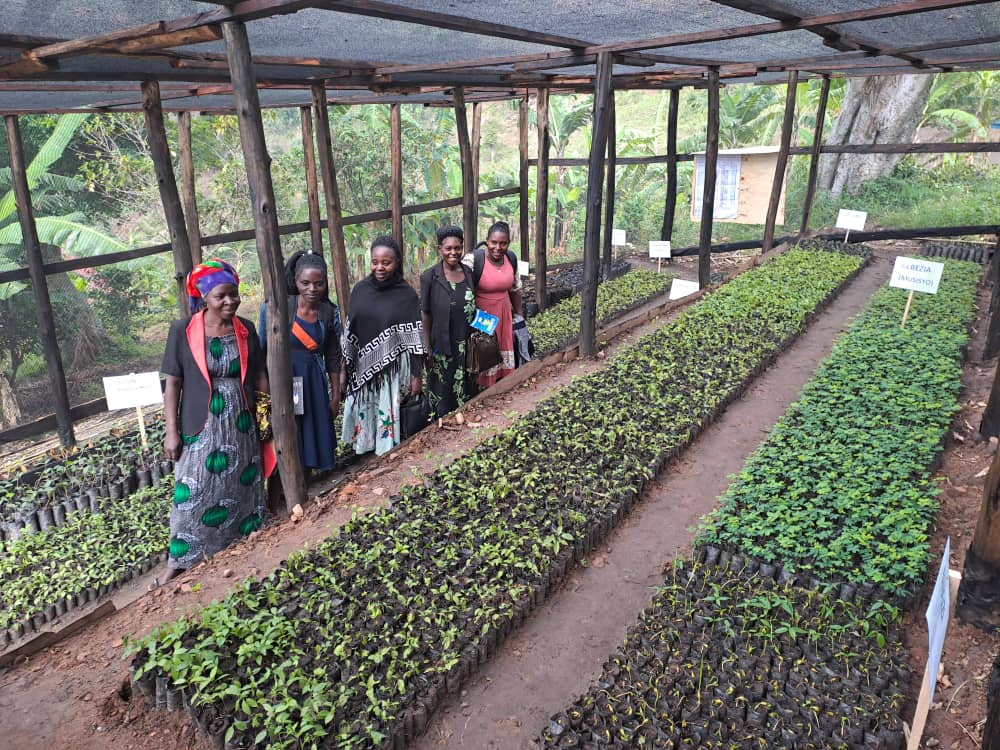
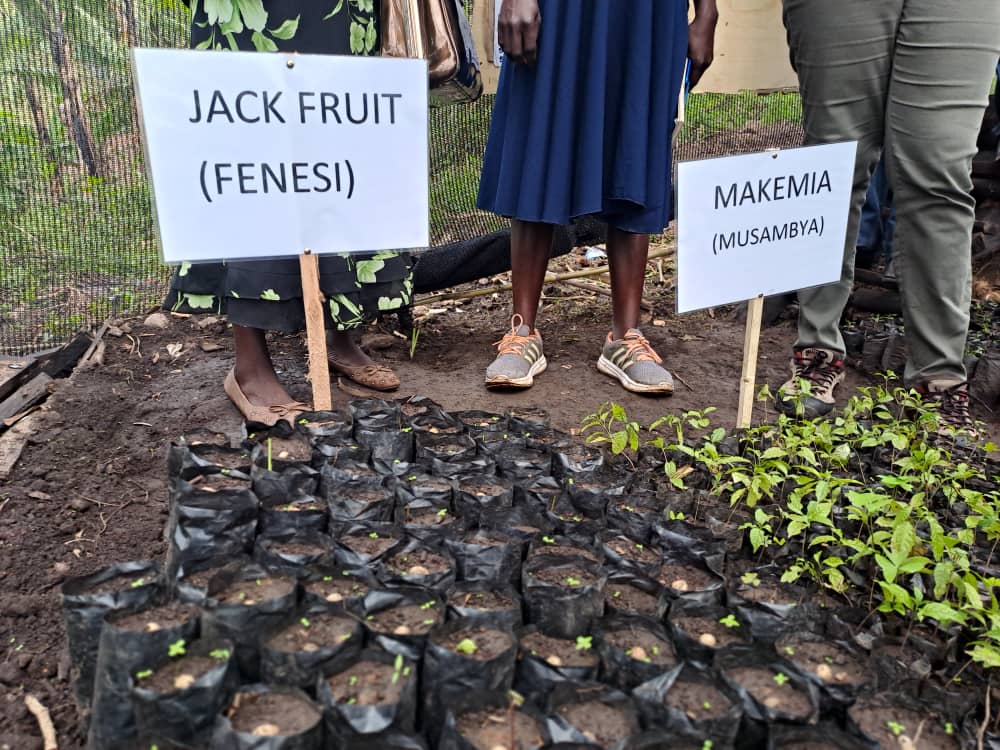
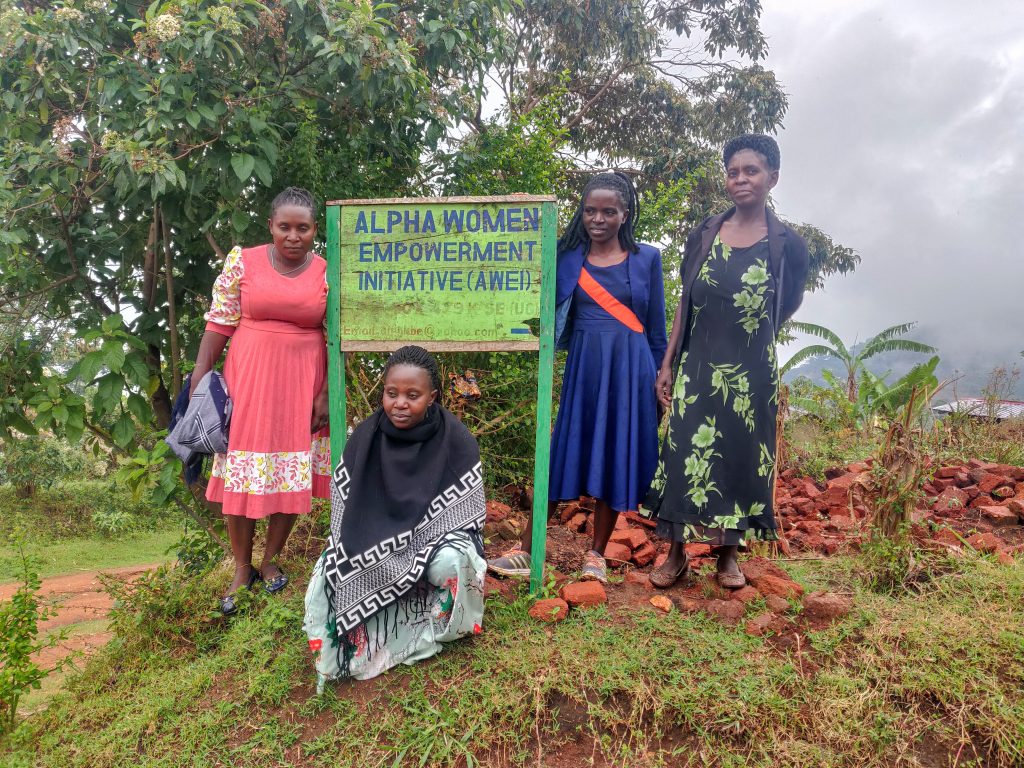
KENYA
In 2022, ITF managed to plant and nurture more than 600,000 trees in Kenya in spite of prolonged drought in various parts of the country. Working closely with local communities and strategic partners, we were able to do timely planting thanks to expert weather pattern advice from Kenya Meteorological Department. More than 6,500 households across Kenya have been positively impacted by our Kenyan projects, with about 1,500 reporting improved incomes.
There is a direct connection between poverty and forest degradation and at the heart of ITF’s restoration work is community livelihood improvement. Our projects ensure that the community takes the lead in preserving their degraded landscapes, from scratch.
Seed collection, nursery establishment, planting and even after care is done directly by the community. Owning and directly benefiting from the project has led to greater impact on and success within the community for both our reforestation and agroforestry projects.
Another key ITF value is to address gender inequality, and nearly all of our Kenyan agroforestry projects are implemented by women. In Kitui County, with support from One Tree Planted, we’ve partnered with Kitui Development Centre, a women-led organisation, to plant trees that replenish and revive this semi-arid landscape. By planting indigenous and fruit-bearing trees, we’re employing agroforestry, integrating trees into farmland to improve soil health and increase yields. The results have been outstanding – with 26,650 trees planted and over 23 hectares restored, this project is literally taking root.
To establish lasting positive change, ITF is helping to establish community nurseries. We have created three created so far, supporting 94 community members with training on seed sourcing, propagation and grafting. Local farmers like Lillian are already seeing the results of this project on a personal level. Liliian says: “I have benefited from all the tree planting trainings and now am able to start my own nursery. Since we started this project, I have been able to earn more than Ksh. 70,000 (£415) from the sale of the tree seedlings. This has assisted me in paying my children’s school fees and meet other domestic needs. I have also planted about 300 tree seedlings and soon I will be harvesting and eating fruits. After a while I will be able to get firewood.”
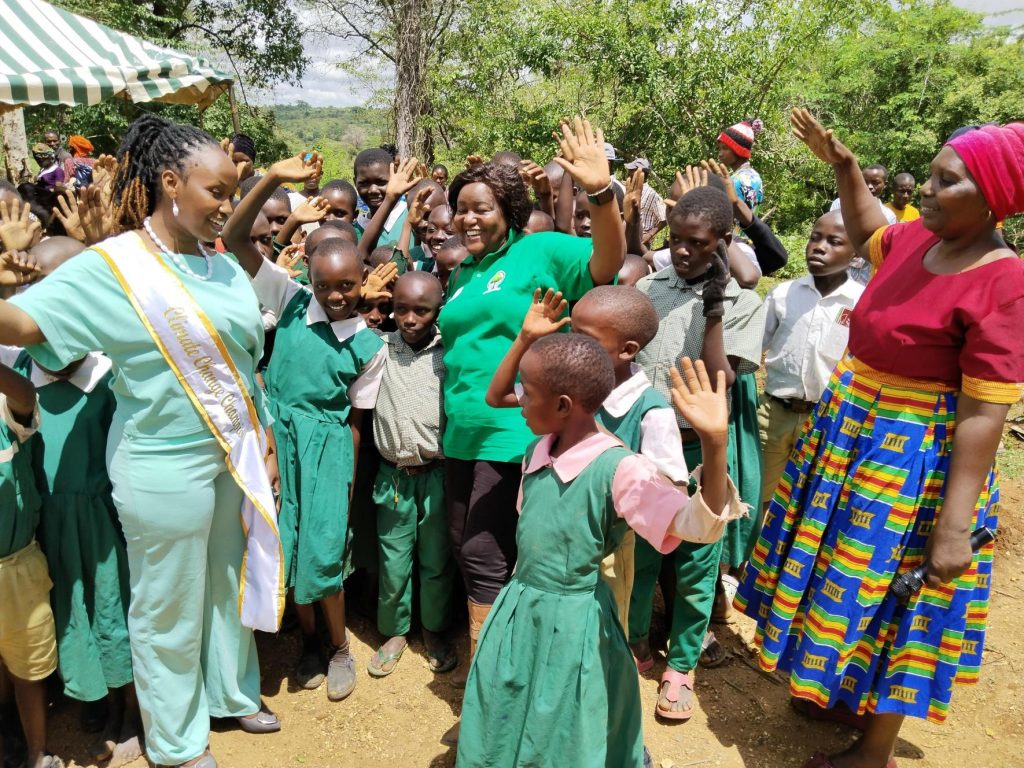
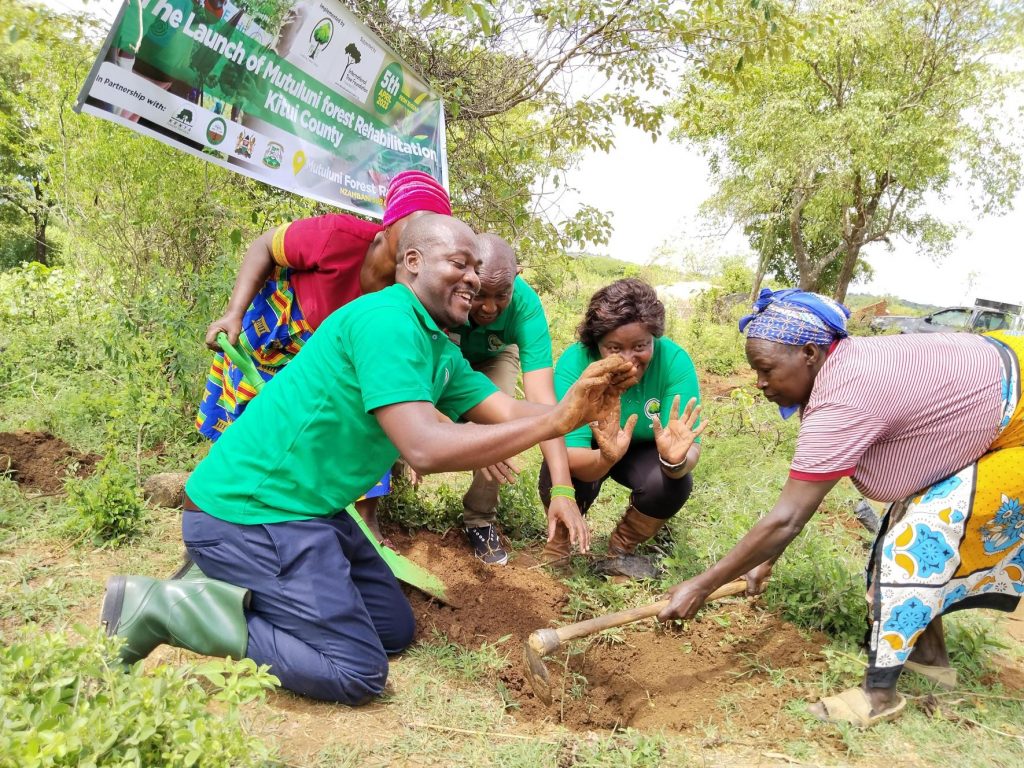
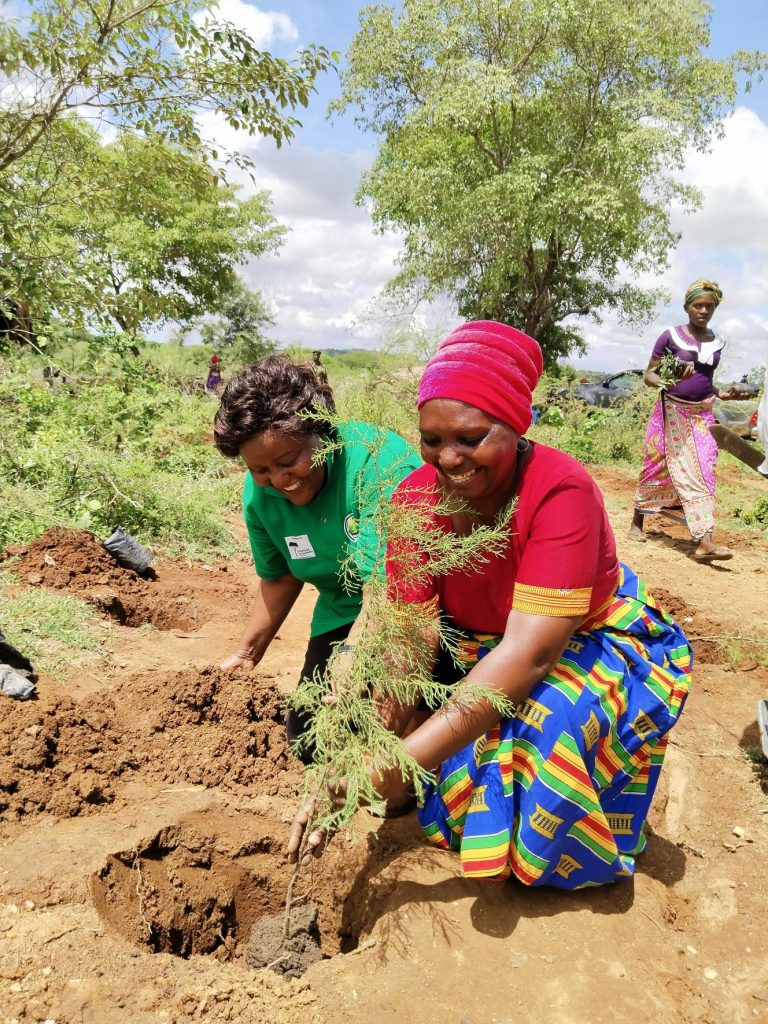
U.K.
In the last 12 months, ITF has supported community-led projects from Skye to Kent to Cornwall. We are also supporting projects adjacent to community-led tree-planting, such as community tree nurseries, woodlands and wellbeing, and refugee support.
This month, ITF partnered with Creating Nature’s Corridors to offer the UPS Foundation a day of tree-planting in Northamptonshire. The aim of the project was to rewild an old field through tree planting, enabling the site to grow undisturbed for greater biodiversity, resilience and health. Local volunteers, UPS employees, their families and pets came together to plant over 500 native UK trees, which ITF will monitor and protect. Soon, the project will be expanded to develop community fruit trees and herb gardens, providing access to fresh produce for the local community.
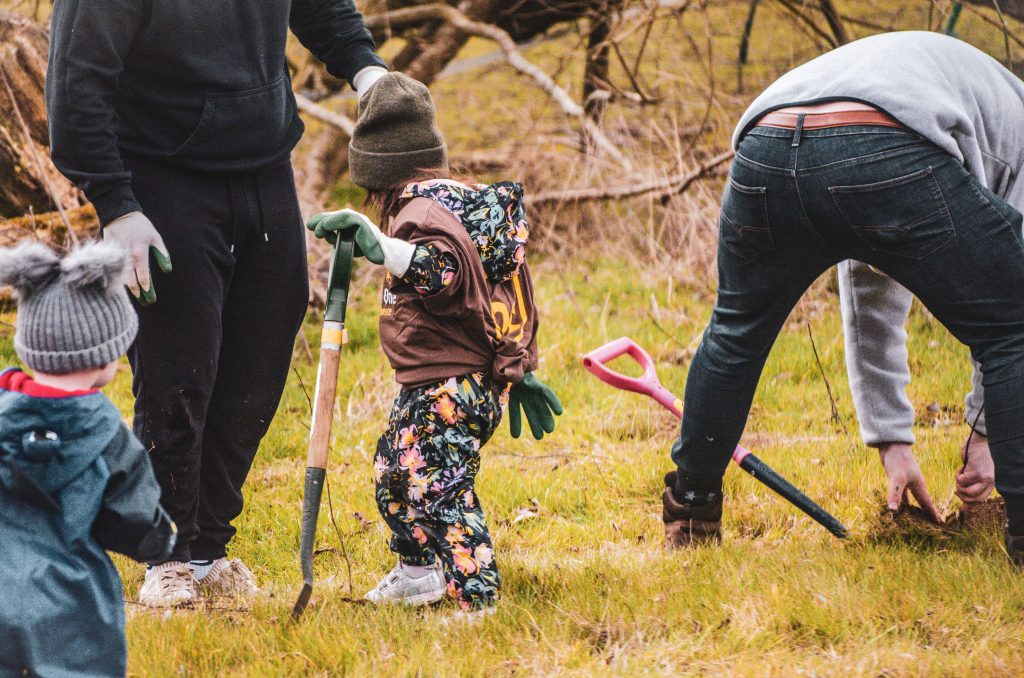
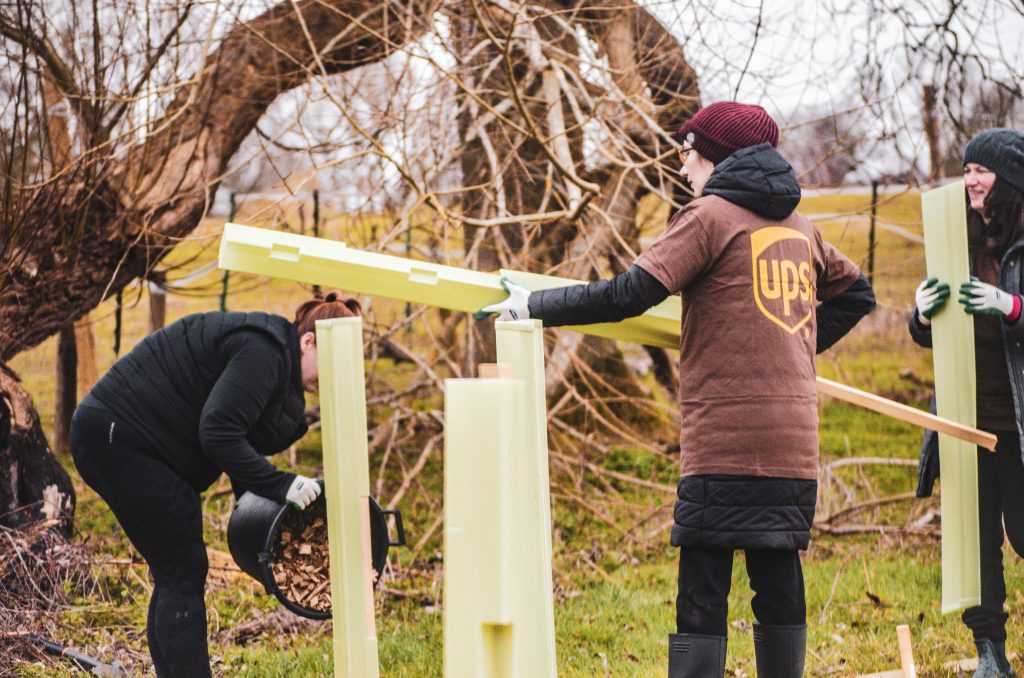
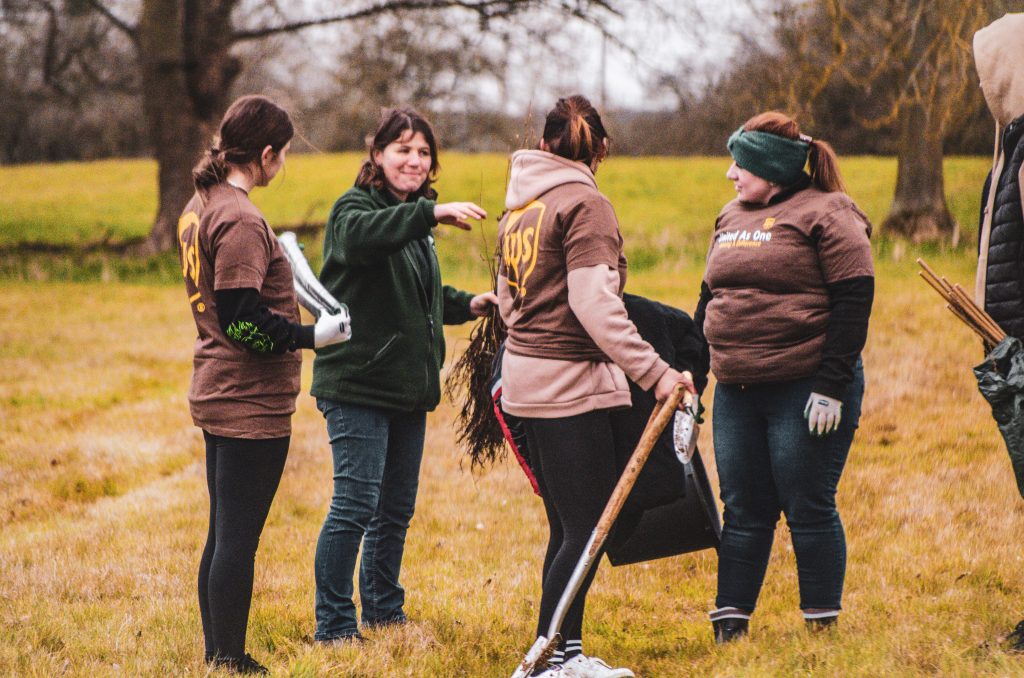
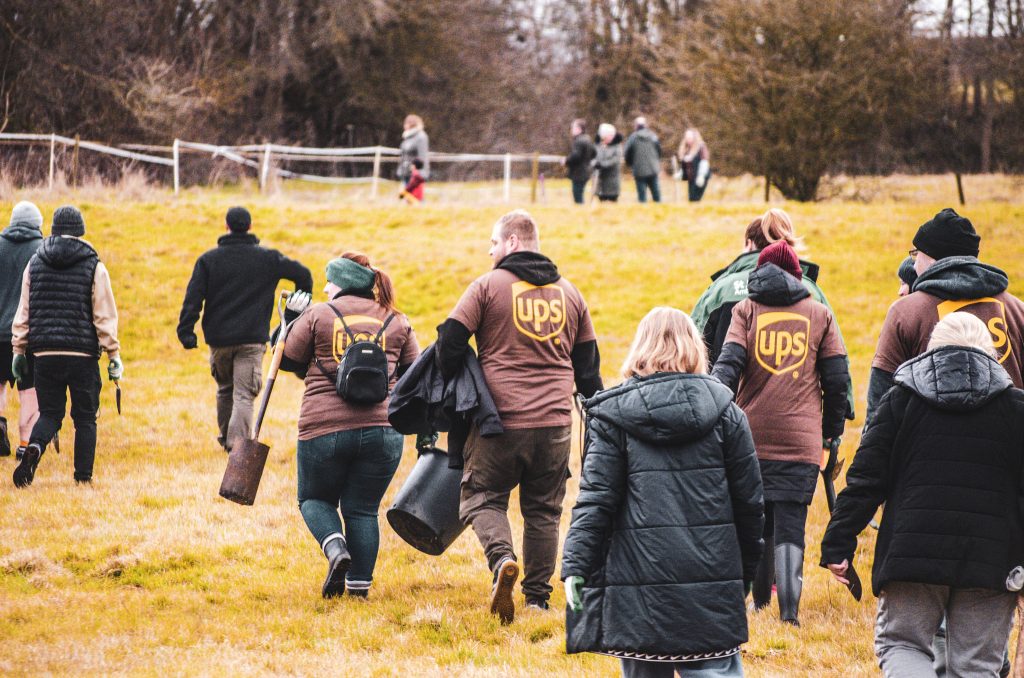
https://www.internationaltreefoundation.org/





